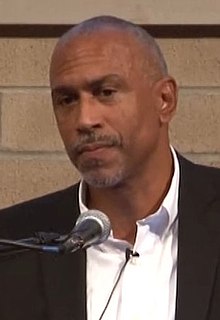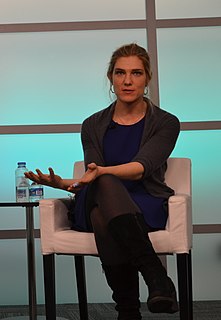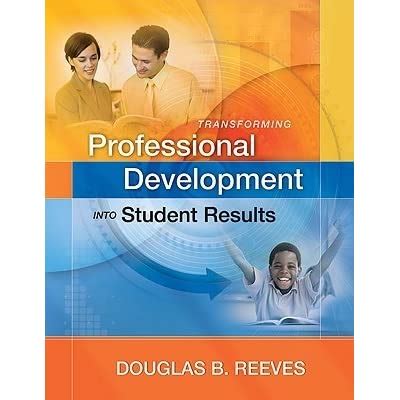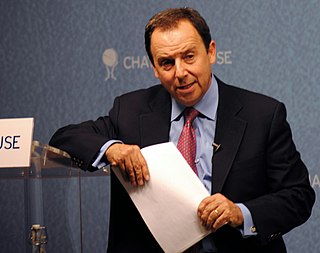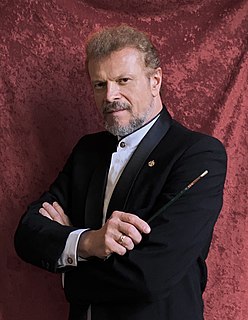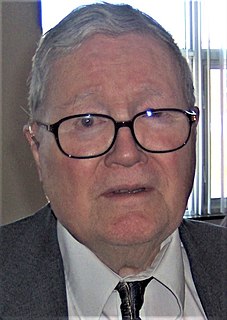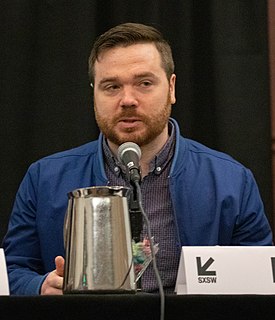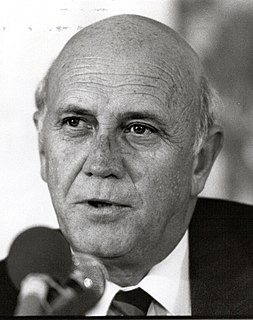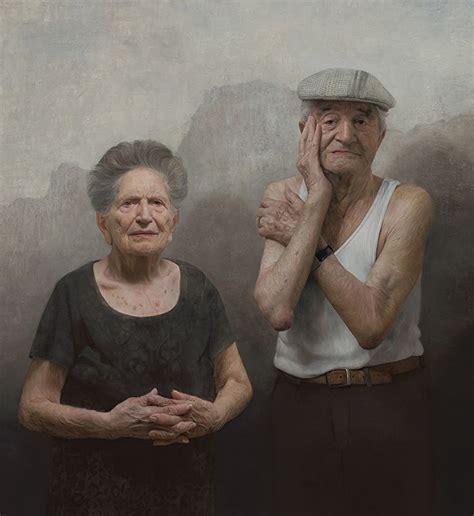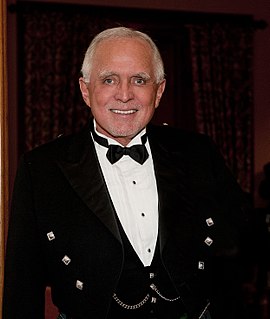Top 1200 Students Quotes & Sayings - Page 5
Explore popular Students quotes.
Last updated on April 22, 2025.
Where I teach students in drama school, there's a course called Dramatics. In this course, all students must put on a play. However, acting majors are not supposed to act. They can write the play, for example, and the writers may work on stage art. Likewise, stage art majors may become actors, and in this way you put on a show.
My students used to say, one such as Mary O'Neal, that I identified the students by their boyfriend/girlfriend relationship. That was the way I knew them and keep up with them. Mary was the girlfriend of Stokely Carmichael. She later became a fine painter of distinction and taught at the San Francisco Art Institute, and later became chairman of the Department of Art at Berkeley.
I get so much from having the opportunity to interface with the younger people and to bring information to them and to represent our culture and our way of life. The feeling and the warmth and the love, it's unbelievable. The type of exchange that goes on between students and teachers or visiting people who are doing master classes, and not just when they're musicians. Even general classes, when the students are not necessarily musicians.
We know that African American students tend to be relational learners. It's about the relationships between a teacher and student. Students respond well to teachers they know, believe in them, care about them, but also who teach in a matter that elicits a more active approach to learning, rather than just sitting and listening. The research on this is strong and has been available for a long time, but it is not widely practiced. That's a huge obstacle.
Not since the days of the Hitler Youth have young people been subjected to more propaganda on more politically correct issues. At one time, educators boasted that their role was not to teach students what to think but how to think. Today, their role is far too often to teach students what to think on everything from immigration to global warming to the new sacred trinity of 'race, class and gender.'
You know, students who major in elementary education - they're going to be grade school teachers - they have the highest rates of math anxiety of any college major. And they bring that into the classroom. So you find students being introduced to math concepts by teachers who may have not only a lack of training but also a lack of enthusiasm about math.
Everyone praises Harvard 'for the students.' But what makes Harvard's students so great is that they are, in many ways, a cross-section of the larger world. They are normal people who happen to be excellent, and this sets them apart. People who go to Yale go because they want to attend Yale. People who go to Harvard go because they can.
Students who acquire large debts putting themselves through school are unlikely to think about changing society. When you trap people in a system of debt, they can't afford the time to think. Tuition fee increases are a disciplinary technique, and by the time students graduate, they are not only loaded with debt, but have also internalized the disciplinarian culture. This makes them efficient components of the consumer economy.
The Common Core State Standards Initiative is an important step forward in ensuring that the United States remains competitive in the global economy. Career technical education (CTE) shares the Initiative s goal that all students must be college and career ready. CTE programs that incorporate the Common Core Standards will ensure students have the academic and technical knowledge and skills to be successful in the 21st century workplace.
I have a process that I seem to always, to some degree, as a writer, adhere to, but I certainly have never imposed the way I write a novel on my students. When I had students, I never said, "You should never start writing a novel until you have the last sentence." I never did that, and I wouldn't do it now, but people now seem so interested in the process [of writing fiction] that I have to constantly make it clear when I describe mine that I'm not being prescriptive. I'm not proselytizing.
For teachers, getting annual test scores several months after taking the test and in most cases long after the students have departed for the summer sends a message: Here's the data that would have helped you improve your teaching based on the needs of these students if you would have had it in time, but since it's late and there's nothing you can do about it, we'll just release it to the newspapers so they can editorialize again about how bad our schools are.
Some conservatives have expressed outrage that the views of professors are at odds with the views of students, as if ideas were entitled to be represented in proportion to their popularity and students were entitled to professors who share their political or social values. One of the more important functions of college that it exposes young people to ideas and arguments they have not encountered at home is redefined as a problem.
Zip codes might be great for sorting mail, but they should not determine the quality of a child s education or success in the future workforce," said Bob Wise, president of the Alliance for Excellent Education and former governor of West Virginia. "With common standards and assessments, students, parents, and teachers will have a clear, consistent understanding of the skills necessary for students to succeed after high school and compete with peers across the state line and across the ocean.
No matter how sheltered [my students] are, no matter how their parents try to do right by them, every single one of them, you know, every single one of us, that's what we all face.?And so it's made me - that's the one change I've marked in myself - it's made me change in the way I relate to my students. I've become a different teacher in that way.
...methods are more important than facts. The educational value of a problem given to a student depends mostly on how often the thought processes that are invoked to solve it will be helpful in later situations. It has little to do with how useful the answer to the problem may be. On the other hand, a good problem must also motivate the students; they should be interested in seeing the answer. Since students differ so greatly, I cannot expect everyone to like the problems that please me.
In my mind, the purpose of education is to enable human beings to develop to their full potential, intellectually and spiritually. That means that students have to be empowered to pursue self-knowledge and the skills that will help them be of service to their fellow human beings. Education should encourage people to develop their curiosity about life; above all, it should not trivialize either the students or their lives.
I support charters, but the right kind of charters. I support charters that support kids who have the highest needs. A charter should be targeting students who are in serious trouble. It should serve students who didn't succeed in public schools when it can help them. Or, at least, charters should agree to accept similar proportions of the kids with the highest needs.
Eighty-three percent of our students are Pell Grant-eligible, which means, by and large, that their families have a dysfunctional relationship with wealth and with work. So if you have never been in an environment where you have come to understand the expectations of a career, because all you have ever seen is people be underemployed or unemployed, then how are you going to learn that? Our students are getting two forms of education. They're getting a rigorous liberal arts training, and they're also getting real world work experience.
The most successful teachers in low-income communities operate like successful leaders. They establish a vision of where their students will be performing at the end of the year that many believe to be unrealistic. They invest their students in working harder than they ever have to reach that vision, maximise their classroom time in a goal-oriented manner through purposeful planning and effective execution, reflect constantly on their progress to improve their performance over time, and do whatever it takes to overcome the many challenges they face.
Communism wasn't a word that I thought of when I went to Cuba. The original Fidelistas were not Communists. They were graduate students at the university and law students. After the Fidelistas took over, they went to Washington and tried to get support from the U.S. government, which turned them down. They were in a desperate political and economic situation, so they took the offer from the Soviet Union. Communism was a matter of necessity.
The difference between our collective generation and your generation (differentiating the reporters from the students) is that we poured our souls out on paper that got easily yellowed and lost. The danger is that many of your friends (nodding at the students) are putting intimate ideas in cyberspace journals. So when today's 15-year-old is 40, some friend is going to drag out all of that idiotic stuff at their class reunion.
For the past three years, the CIVIX Student Budget Consultation has helped us to better understand the most pressing national issues for young Canadians. I am delighted to note that on key issues, such as balancing the budget, debt reduction, and lowering taxes, we stand in step with the thousands of students who participated in this initiative from coast to coast to coast. I want to thank the students and teachers for investing their time and energy in this worthwhile initiative. Their enthusiastic participation inspires great hope for Canada's future.
Once they arrive, affirmative action kids are generally left to sink or swim academically. Brown (University) offers plenty of counseling and tutoring to struggling students, but, as any academic Dean will tell you, it's up to the students to seek it out, something that a drowning minority student will seek to avoid at all costs, fearing it will trumpet a second-class status.
I’m worried that students will take their obedient place in society and look to become successful cogs in the wheel - let the wheel spin them around as it wants without taking a look at what they’re doing. I’m concerned that students not become passive acceptors of the official doctrine that’s handed down to them from the White House, the media, textbooks, teachers and preachers.
The limitations of federal laws are able to create real progress at the local level. Ultimately, to effect not just incremental progress but progress that is transformational for students, we need committed leadership - people who believe deeply that their students can achieve at the highest levels and who know how to create the conditions at the classroom, school and system level to give them the opportunities they deserve.
A much more radical conclusion . . . that, so far as I know, is shared by only a very few students of public choice [is]: that government employees or people who draw the bulk of their income from government by other means should be deprived of the vote . . . It is another example of the opening up of alternatives for investigation and the presentation of new conceivable policy options characteristic of public choice, rather than a policy that all its students favor.
Teachers can be a living example to their students. Not that teachers should look for students to idealize them. One who is worth idealizing does not care whether others idealize them or not. Everyone needs to see that you not only teach human values but you live them. It is unavoidable sometimes you will be idealized -- it is better for children to have a role model, or goal, because then the worshipful quality in them can dawn.
I regret that there aren't more short stories in other magazines. But in a certain way, I think the disappearance of the short-story template from everyone's head can be freeing. Partly because there's no mass market for stories, the form is up for grabs. It can be many, many things. So the anthology is very much intended for students, but I think we're all in the position of writing students now. Very few people are going around with a day-to-day engagement with the short story.
I focus on faculty, as opposed to facilities, budgets, endowments or students. I do so because I believe, based on many decades of work as a teacher, a scholar and an administrator, that the quality of the faculty determines the quality of the university. Everything else flows from the quality of the faculty. If the faculty are good, you will attract good students and you will have alumni who will raise funds for you.
In some of the classes, especially the introductory religion courses I took, the professors can veer into a particular strain of religious anti-intellectualism. Professors typically aren't given tenure at Liberty, so there's pressure to hew to the party line on religious and social issues. I didn't see a whole lot of my professors encouraging critical thinking among their students. Which isn't to say that students don't engage critical thinking skills at Liberty - just that it wasn't part of my classroom experience there.
Race is not the only differential in South Africa, in the new South Africa, where all schools are open, mother-tongue education is a very big issue. One of the main reasons why the dropout figure of black students, and the lower pass rate of black students in the present education system, and it was like that before, was that we didn't have mother-tongue education.
In high school I went to the Los Angeles County High School for the Arts. And this is like Fame. It's like that sort of prototypical, dancers in the hallway, theater students, musical students, art geeks. And it was a kindergarten in the truest sense of the world: a children's garden where I was able to sort of really come into myself as an artist, as a person, sexuality issues - like, all of this became something where there was a firming-up and a knowing that went on.
I fear that the impact of university censorship and university denial of due process will be to mis-educate a generation of students away from core values of civil liberties and constitutional safeguards. Students who have been led to believe by university administrators and faculty that censorship and denial of due process are acceptable norms will be more susceptible to accepting those norms in their post-university lives. That would be a tragedy for America.
The Organization of Afro-American Unity was an organization that was a secular group. It largely consisted of people that we would later call several years later Black Powerites, Black nationalists, progressives coming out of the Black freedom struggle, the northern students' movement, people - students, young people, professionals, workers, who were dedicated to Black activism and militancy, but outside of the context of Islam.
If college cut-offs are above 90 per cent in a particular class, then where would mediocre students with 60 per cent or 70 per cent go? Students who secure 60-70 per cent marks are also intelligent, but they could not get admission in courses of their choice for scoring lower marks than the toppers.
The other way that you democratize the food movement is through the public school system. If you can pay enough for the school lunch system so that it can actually be cooked and not just microwaved, so that these schools can buy local food, fresh food, because right now it's all frozen and processed, you will improve the health of the students, you will improve the health of the local economy, and you will have better performing students.
With my students I give them lots and lots of guided writing. Part of it is as simple as writing a lot but not toward anything. The mind floats. Then I help them see where the language has heat. If we do this a lot in class, students eventually relax into this writing practice and enjoy it. Even just that - writing pleasure without the anxiety of "audience" or "grade" or "success" - is a kind of impetus toward the unfamiliar.
I think [testing] has had a profoundly problematic impact on student learning. It must seem to students that their worth as individuals is equivalent to their test score. The stress the high stakes culture has on teachers is also highly negative and must surely impact students in a negative way. It also de-professionalizes teachers because it encourages them to be script readers, followers of rigid schedules, and to disregard the needs of the people they teach in favor of the scripts and schedules.
I often notice how students can gain the capacity to use certain critical methodologies through engaging with very different texts - how a graphic novel about gentrification and an anthology about Hurricane Katrina and a journalistic account of war profiteering might all lead to very similar classroom conversations and critical engagement. I'm particularly interested in this when teaching law students who often resist reading interdisciplinary materials or materials they interpret as too theoretical.
An art form requires genius. People of genius are always troublemakers, meaning they start from scratch, demolish accepted norms and rebuild a new world. The problem with cinema today is the dearth of troublemakers. There’s not a rabble-rouser in sight. There was still one, but he went beyond troublemaker to court jester. He clobbered the status quo. That’s Godard. We’re fresh out of ‘bad students.’ You’ll find students masquerading as bad ones, but you won’t find the real article, because a genuine bad student upends everything.
Colleges prefer to enroll wealthy students because they know it's more likely that they'll pay for full tuition without needing financial aid. They're also more likely to have parents who will donate large sums of money to the school. When the privileged students graduate, they're expected to join the alumni association and also donate cash.
But all was not sunshine and Marvin Gaye songs. [UCLA] also recruited black students as part of a High Potential Program that was meant to bring diversity to the campus. Two of the students that were part of that program were Alprentice "Bunchy" Carter and John Huggins, Jr., both members of the Black Panther Party's Southern California Chapter.
I am relieved that, in my own teaching, I don't have to moderate between high stake teaching and education for the virtues. If I did, I would give students the tools to take the tests but not spend an inordinate amount of time on test prep nor on 'teaching to the test.' If the students, or their parents, want drill in testing, they'd have to go elsewhere. As a professional, my most important obligation is to teach the topic, skills, and methods in ways that I feel are intellectually legitimate.
Because they don't teach the truth about the world, schools have to rely on beating students over the head with propaganda about democracy. If schools were, in reality, democratic, there would be no need to bombard students with platitudes about democracy. They would simply act and behave democratically, and we know this does not happen. The more there is a need to talk about the ideals of democracy, the less democratic the system usually is.
I encourage film students who are interested in cinematography to study sculpture, paintings, music, writing and other arts. Filmmaking consists of all the arts combined. Students are always asking me for advice, and I tell them that they have to be enthusiastic, because it's hard work. The only way to enjoy it is to be totally immersed. If you don't get involved on that level, it could be a very miserable job. I only have one regret about my career: I'm sorry that we are not making silent movies any more. That is the purest art form I can imagine.
Differentiated Instruction is a teaching philosophy based on the premise that teachers should adapt instruction to student differences. Rather than marching students through the curriculum lockstep, teachers should modify their instruction to meet students' varying readiness levels, learning preferences, and interests. Therefore, the teacher proactively plans a variety of ways to 'get it' and express learning.
I hadn't had any course work in ceramics. I had no courses in art education but I wasn't going to let this chance to have a job pass me by. I went out and learned and I stayed one step ahead of the students by reading and I got to be pretty proficient at throwing on the wheel and making my own glazes, ordering the chemicals and having the students go out and dig and process their clay, and doing things that they weren't teaching at Howard University. So Talladega College opened up my whole sensibility about experimental teaching.
Teaching is a huge part of what I do. I love to think about what I do out loud, and the best way to do this is to teach. I usually learn a lot from the students in my workshops, because we work to build the classes around a collaborative environment where everyone is working towards the same goal of learning how to observe and see the subject well, because everyone brings different approaches and experiences with them, the other students and myself learn new methods that we can add into what we do.
In the 1960s when the recording studio suddenly really took off as a tool, it was the kids from art school who knew how to use it, not the kids from music school. Music students were all stuck in the notion of music as performance, ephemeral. Whereas for art students, music as painting? They knew how to do that.
Our accent will be upon youth: we need new ideas, new methods, new approaches. We will call upon young students of political science throughout the nation to help us. We will encourage these young students to launch their own independent study, and then give us their analysis and their suggestions. We are completely disenchanted with the old, adult, established politicians. We want to see some new faces -- more militant faces.
As I continue to teach, I have more to offer my students, and as I continue to teach, I have more to learn from my students. I do know some writers who feel very drained when they leave the classroom, and for me this would be a sign that maybe it's time to take a break or refocus because I always leave the classroom even more excited than I was when I walked in.
I was fortunate to be at that school in an era in which encounters between students and teachers were encouraged; there were a number of teachers who lived on campus, and they'd regularly invite students over for dinner on the weekends. I hope it's still like that: being treated seriously by an adult you admire is a great gift. Children, like adults, want respect - but it's only when you're older that you realize how few people actually extend it.
Professor Brown: 'Since this slide was made,' he opined, 'My students have re-examined the errant points and I am happy to report that all fall close to the [straight] line.' Questioner: 'Professor Brown, I am delighted that the points which fell off the line proved, on reinvestigation, to be in compliance. I wonder, however, if you have had your students reinvestigate all these points that previously fell on the line to find out how many no longer do so?'



